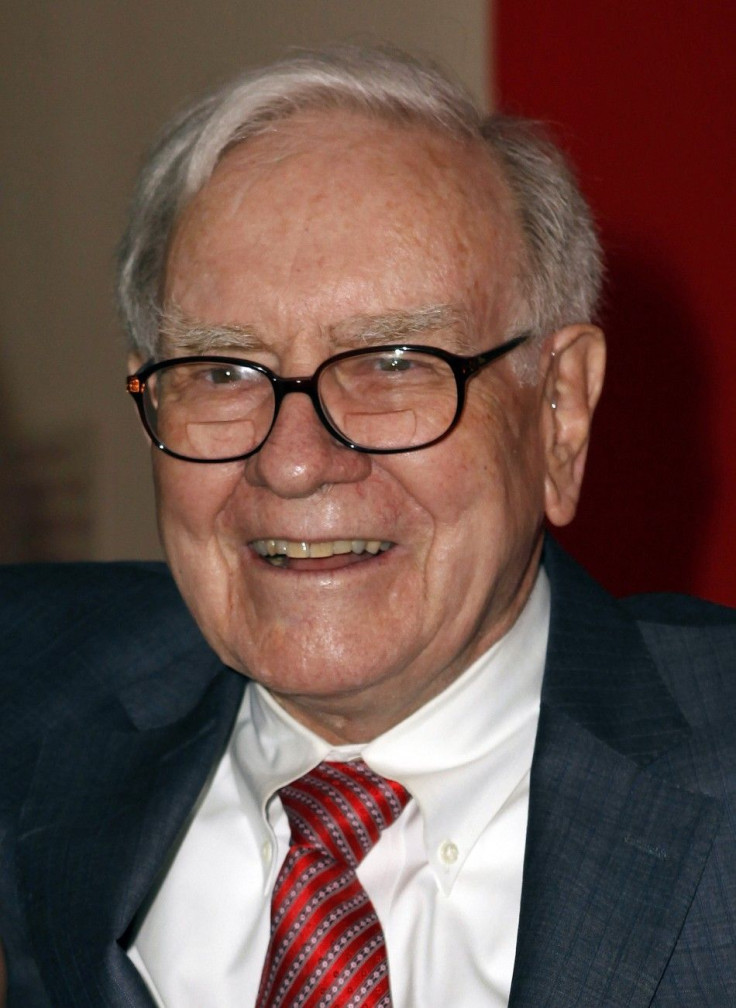Berkshire Hathaway's Buffett is past his prime
COLUMN: We give too much weight to what Warren Buffett says, does

You can't judge a company's real value by its stock price, but sometimes you can pass fair judgement on a book by its cover.
In the case of Berkshire Hathaway, that means the company is worth more than it's beaten-down stock price suggests and it's leader, chairman and CEO Warren Buffett, is well past his prime and ready to retire and go home.
Just look at the man. He's lived a few years too long to still be leading a company as big and valuable as Berkshire Hathaway (NYSE: BRK.A; BRK.B). He's got Andy Rooney eyebrows, and too much in common with George Burns. That's nothing against aging. We all do it. It's just that maybe it's time everybody quits thinking he's more important and perfect than he really is.
He's human, after all, and a dated one at that.
Yes, history will show he was one of the most influential investors of the 20th century, but unless I missed something, we're now a full decade into the 21st century. He was a buy-and-hold bull back in the day when that meant something, when computer systems didn't control the stock market with micro-second trades based upon algorithms and when recessions did not officially end yet really continue for protracted periods of time.
If anything, Buffett should be in jail for insider trading. Consider events of the Great Recession as prime example. When GE got into financial trouble as commercial paper ran dry for a short spell and the company wanted to secure some just-in-case capital while Uncle Sam got its backstop in order, Buffett stepped in to the rescue with $10 billion to invest for preferred shares which got Berkshire Hathaway a valuable 10% coupon and stock price options that will be valuable, one day.
Buffett got similar treatment with Goldman Sachs in the great recession, when financial the company went scrambling for cash, making a $5 billion investment in that company in 2008 at the height of the crisis on behalf of his company, Berkshire Hathaway. Earlier this year, Goldman Sachs repurchased Berkshire Hathaway's investment for $5.65 billion, yielding a nice return for Buffett's Omaha, Nebraska company.
Martha Stewart went to prison for selling stock on a tip from her broker and denying it. Warren learned from the source companies needed cash, gave it to them for stock, and got a big bonus for his company for the trouble.
Oh, how so many individual investors holding GE stock in their retirement accounts would have liked to know when the company's stock price was still in the 30s what was going on behind the scene.
Over the past several decades, perhaps no figure has been as closely watched and emulated by investors big and large as Buffett. They look closely to see what stocks Berkshire Hathaway has added or traded from company reports to see what sectors or companies they should add or drop from portfolios, and they devour books about his investment strategies and style, proclaiming him the money master.
The biggest secret to Buffett's success, though, is probably that he's had a bunch of money at his disposal for investment and power mongering. When you have it, you've got it, but when you don't you don't. Having it and playing what amounts over the years in a century marked as decidedly bullish for traditional investment strategies and equities to baseline conservative buy and hold worked well for Buffett.
But as the world changes so fast, so too does the importance we all should give to every whim and whimper from Buffett. Sure, he's important because he's still heading Berkshire Hathaway, a big company financially speaking. The biggest story there, though, may be whether or not the company's shares are priced at a value level after being driven down in recent months.
Hard to imagine one could call a share price worth $112,000 a bargain, but even a weary naysayer must admit that intrinsically it probably is, since that price is barely above book value. But one reason among several that Berkshire Hathaway's stock price has been driven down is concern about who Buffett will choose as his successor whenever he does finally retire.
I'm not so sure, however, if that talk and other that continues to swirl around Buffett is too much weight given to his place in the investment world in a 21st century reality. Simply, his status for today's terms is overblown. Compared to the likes of Apple and Google and even Goldman Sachs or GE, what that company does is not that complicated. Or else the aged Buffett wouldn't be able to pull it off.
© Copyright IBTimes 2024. All rights reserved.





















